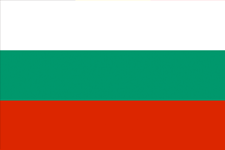EU Tracker – Local heating and cooling plans in Bulgaria


Summary
What is the status of the transposition of Art 25.6(EDD) and its implementation ?
Bulgaria is not well prepared for EED article 25.6. New national legislation and building an adequate support framework will be needed.
Bulgarian municipalities have no obligation or incentives to prepare heating and cooling plans. All municipalities are obliged to make energy efficiency and renewable integration programs. However, their content is not strictly defined, often lacks a spatial dimension, and does not generally cover heating and cooling. The support framework for energy planning is very limited, municipal staff capacity insufficient, and the quality and access to data is constrained. Local authorities in Bulgaria are hence in need for technical guidance, dedicated funding schemes, investment in human resources in local administrations and access to harmonised and detailed data to make the transposition feasible.
Detailed assessment
The legal framework and the obligations

There is no obligation nor incentive for municipalities to work on the decarbonisation of the heating and cooling sector
Overview of the legal frameworks per governance level in Bulgaria
| National | Bulgaria’s main energy and climate objectives are set out in its updated Integrated Energy and Climate Plan (NECP) for 2021–2030, which was officially submitted to the European Commission on 15 January 2025. The plan defines targets across several key dimensions, including renewable energy, energy efficiency, and greenhouse gas emissions. In the heating and cooling sector, the NECP sets a renewable energy share target of 44.01% by 2030, reflecting a modest increase in ambition compared to the previous version. The role of local authorities is recognised as critical in achieving these goals, particularly in expanding the use of renewable energy. However, no concrete proposals are provided to integrate local energy planning into broader strategic spatial planning frameworks. |
| Local | All Bulgarian municipalities are required to draft energy efficiency and renewable energy programme according to the Energy Efficiency Act (articles 12 and 13). These programmes must be developed every three years. The National Sustainable Energy Development Agency (SEDA) provides guidelines to municipalities for the drafting of these two programmes. They are however no mandatory requirements on the content of these programmes, without any requirements and guidelines related to spatial mapping and planning for heating and cooling sector. Municipal programmes focus mainly on the municipally owned building and assets, as municipalities lack a legal mandate to impose measures for the private sector. Municipalities must report their actions to the SEDA with a spreadsheet detailing the actions they implemented and the energy and cost savings that they have brought. |
The support framework

A very weak financial, technical, and human support available to local authorities
There is no structural support framework in place in Bulgaria for heating and cooling planning or energy planning in general. Municipalities are reliant on EU-projects and lack financial and technical support but also skills and access to quality data.
Provided Support
| Technical and organisational | 1/5 | There is no technical support provided by the government on the decarbonisation of heating and cooling systems. SEDA has provided guidelines for projects undertaken by municipalities for their energy efficiency and renewable energy local programme, but the heating and cooling sector and integrated spatial planning are barely covered. Only Sofia which has a district heating and cooling system has integrated a heating and cooling component to its energy efficiency and renewable energy local programme. Guidelines to municipalities for developing, expanding and transforming district heating has so far not been developed by the State. |
| Financial | 1/5 | There is no dedicated budget to support municipalities in the making or implementation of their energy efficiency or renewable energy programmes. The municipalities can apply to a national grant system for the renovation of building stock and street lighting which may include the replacement of the heating system. Local governments rely mainly on EU projects or funds to finance their current energy programmes’ drafting and implementation. |
| Staff & skills | 2/5 | The lack of skills in local authorities devoted to climate and energy constrains Bulgarian municipalities’ abilities to carry out energy and climate related planning activities. Sofia has an energy and climate department with in-house expertise, but most Bulgarian municipalities do not have a dedicated department and have often only one dedicated staff member in charge of all sustainability-related topics. |
| Access to data | 1/5 | Access to data is a critical barrier for Bulgarian municipalities to work on energy planning in general. There is no unified system to collect data and no obligation for utilities to share their data with municipalities. The DSOs usually share on request of the municipality the energy demand data for the municipally owned buildings but would only share a summary of energy demand data for residential buildings. Municipalities can access a national registration platform for energy audits and certificates mainly for public buildings. For residential buildings municipalities would use aggregated data. Data on the potential of renewable energy sources are not available at a local level, making municipalities compelled to make their own assessments. |
